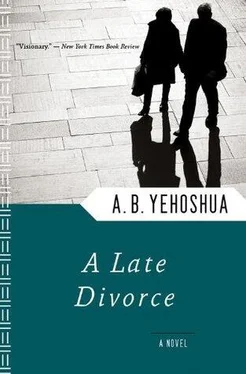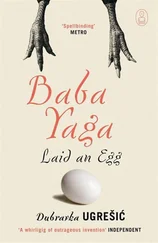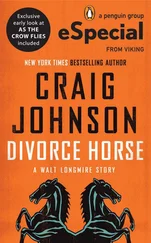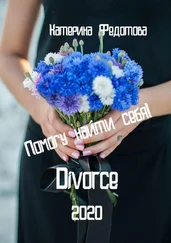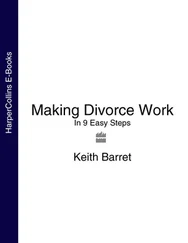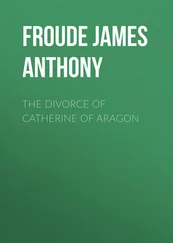“Karl Heinsen’s essay Der Mord, Murder, is considered the most important ideological document of the early terrorist movement. Reprinted several times and widely quoted from, it first appeared in 1849 in a newspaper put out by a German political exile in Switzerland. In it Heinsen, who was exiled himself, seeks a moral justification for terror. He himself was not a socialist but a radical bourgeois, for which both Marx and Engels attacked him; it was his rejection of socialism rather than his espousal of terror that offended them. In later life Heinsen emigrated to America, where he edited several German newspapers. He died in 1880 in Boston, a city that he considered the one refuge of culture in the United States.”
A faint smile darts over father’s tense face when I relate Heinsen’s opinion of Boston but at once he starts and stares down.
Dina isn’t listening. She’s still beaming with dumb pleasure. She had no time to put on makeup this morning and her face looks all splotchy. She has an old childish blue dress on. She peeks at the notebook of the student sitting next to her who offers her his notes right away. They exchange whispers. Is she going to make a public nuisance of herself?
“Heinsen begins by reviewing several historical cases of primitive terrorism in which individuals sought to strike down tyrants on their own initiative. He describes the respect and admiration we feel for such figures as Harmodius and Aristogiton, who murdered the tyrant Hipparchus…”
I’ve learned their names by heart and don’t even have to sneak a look at my notes. Father bends marvelingly forward. I’m taut as a spring driven by an intellectual anger.
“He demonstrates that, historically, terror in itself has never been repudiated as long as the wickedness of the tyrant or regime it is aimed at has been acknowledged. On the contrary, terrorists throughout history have earned our approbation. If the young German named Stacz who tried to kill Napoleon, asks Heinsen, had succeeded and not been caught at the last minute, would not he be a world-famous figure today?”
Again you can hear a pin drop. I pace back and forth looking down at the floor tiles.
“Heinsen develops his theory further by arguing that the difference between state and individual terror is to the moral advantage of the latter. The state employs weapons of destruction that indiscriminately kill people by the hundreds, whereas the terrorist strikes only at a specified target. The moral contrast between an artillery shell and a pistol shot is entirely in the pistol shot’s favor.”
They’re bent over their notes. They’ll write down whatever I tell them.
“Indeed, a well-aimed pistol shot…”
I stand facing them. I raise one arm and make a pistol with my thumb and forefinger. The silence deepens.
“In those days care was still taken to avoid injuring the innocent bystander. When the final touches were being put to the planned assassination of Admiral Dubasov, the terrorist Vinarovsky declared: ‘If Dubasov’s wife is there with him, I won’t throw the bomb.’ Karl Heinsen makes his own position clear. You’ll read it for yourselves. Tomorrow the vacation begins and you’ll have plenty of time. I’ll return my copy of the book to the library.”
“But put it on the reserved shelf before it disappears too…”
The familiar ripple of laughter. Only the technicalities concern them. Their pettily practical souls.
“All right. But I want you to read two more selections in the anthology. One by Sergei Nichaev and the other by Morozov.”
I angrily write their names on the blackboard.
“Is that clear? Those two selections too, and I’m warning you that you’ll be tested on them. I’ve had enough of this monkey business. If you don’t read everything you’ll never understand the intellectual background of young Vera Zasulich, the daughter of aristocrats, who served two years in jail even before she decided that she was honor-bound to make Tarpov pay for his bestiality. She loaded her pistol, stuck it in her coat pocket, and gained admission to Tarpov’s suite on the pretext that she had an appointment with him…’’
The bell. At last. Father looks pale. He props his head on one hand while holding the valise on his knees with the other.
“She waited quietly in the vestibule outside his office. She knew him well — in fact, she had visited his house many times with her parents as a small girl. I’ve mentioned that she was of aristocratic stock, and relations among the terrorists between children of nobility and children of commoners were deep and fraught with consequences. As soon as he stepped out of his office surrounded by his assistants she rose and shot him in the chest. She didn’t kill him, though; he was only wounded. She made no attempt to escape. She threw her pistol on the floor and calmly let herself be arrested.”
Dina stops whispering. All eyes are on me in the sweetly deepening silence. They want adventure stories not history.
“The government did not try Zasulich before a regular court but rather before a special jury of magistrates that was appointed to give her sentence moral standing. To everyone’s amazement, however, this jury acquitted and freed her. And when afterwards the police sought to arrest her administratively in the street, a crowd of admirers rescued her from their hands. Eventually she illegally left Russia and became a leading figure among Russian revolutionary exiles abroad. Vera Zasulich’s pistol shot and dramatic acquittal paved the way for many more assassinations. A wave of terror swept over Russia. That same year Krabchinsky, a strange but talented man about whom we shall yet have much to say, laid still another tier in the growing edifice of terror with the publication of a small pamphlet entitled A Death for a Death. ”
Father’s eyes shut. The valise almost slips off his knees. The door opens. The next class’s students are trying to get in.
He shuts his folder with a flourish. He takes out the cigarette prepared in advance and lights it with the ritual gesture that marks the end of the lesson. A cloud of smoke envelops him as the dry tension slowly eases. The students rise to go. Two of them ask him for the book. He hands it to them in silence, answering their questions distantly, laconically, almost brutally. He throws his papers and other books one by one into his briefcase, bristling as new students fill the room. Already I’m making my way out through the crowd bead down careful to touch no one passing without a glance by Dina who stands giggling by the door with two students. Neither do I look at father who leans uncertainly against the wall unable to find a place for his valise. Gingerly I lay my hand on him: “Come, we’ll be late.” And without looking back I hurry down the corridor and skip quickly down the stairs. He feels my anger as he hurries after me.
“I hope we didn’t disturb you,” he murmurs. “Dina insisted that we drop in to watch you teach. I myself didn’t want to…”
“It’s all right.”
He smells faintly of eau de cologne. What’s gotten into the man?
“You’re so intense that you scared me. But I’m glad to have seen you lecture. Marvelous! You’re a real orator. And with those dramatic hand gestures… I thought you were really going to shoot Bravo! Go on being tough with them. Give them exams. That’s the only way they’ll respect you. What was the subject of today’s lesson, terrorism? How interesting. Are you lecturing on that all year long?”
“No. The course is on late-nineteenth-century Russia.”
“Of course. That’s what your doctorate’s about.”
“No, it’s about the 1820s. I sent it to you… but I don’t suppose you ever looked at it…”
Читать дальше
